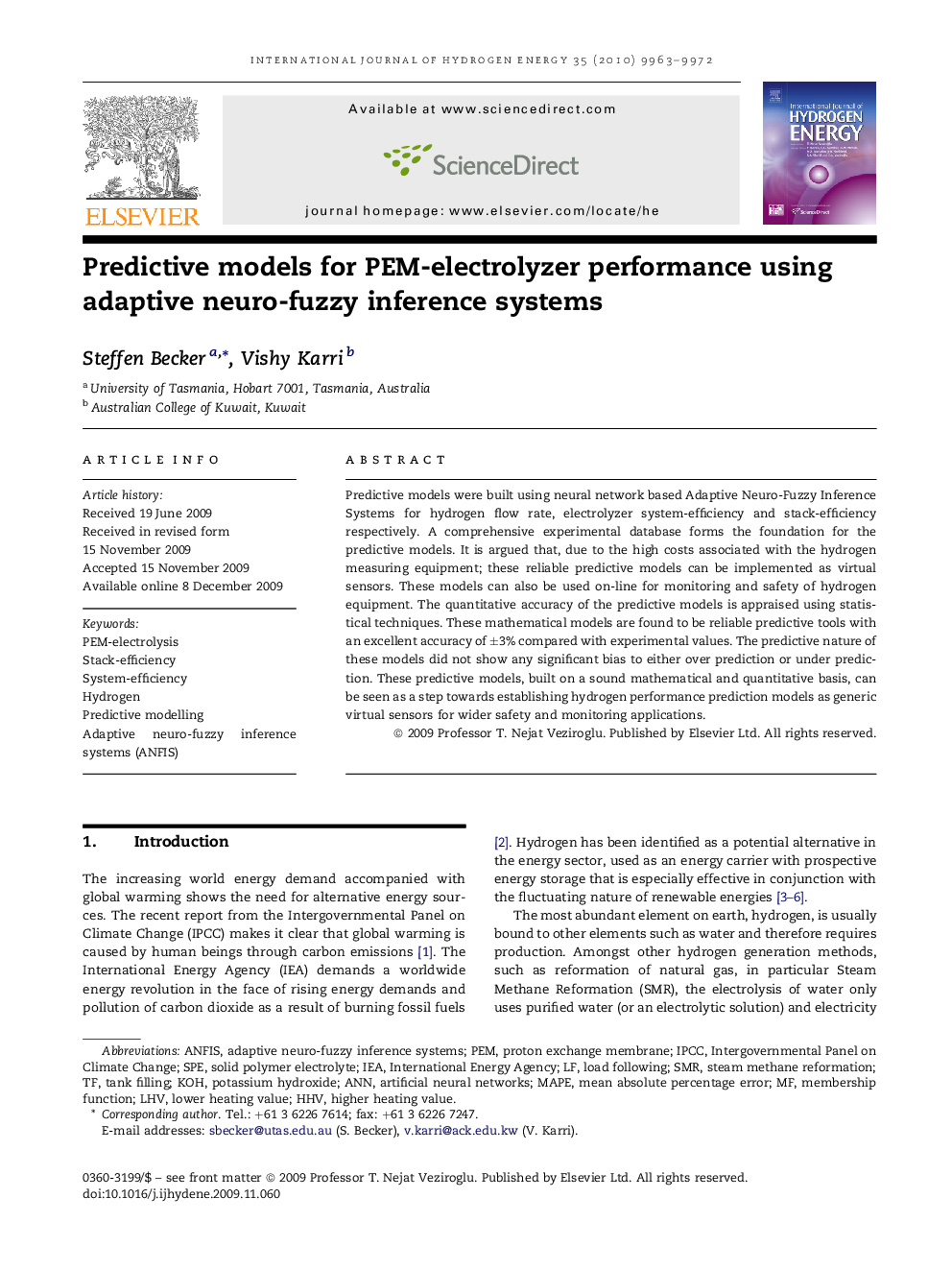| Article ID | Journal | Published Year | Pages | File Type |
|---|---|---|---|---|
| 1280294 | International Journal of Hydrogen Energy | 2010 | 10 Pages |
Predictive models were built using neural network based Adaptive Neuro-Fuzzy Inference Systems for hydrogen flow rate, electrolyzer system-efficiency and stack-efficiency respectively. A comprehensive experimental database forms the foundation for the predictive models. It is argued that, due to the high costs associated with the hydrogen measuring equipment; these reliable predictive models can be implemented as virtual sensors. These models can also be used on-line for monitoring and safety of hydrogen equipment. The quantitative accuracy of the predictive models is appraised using statistical techniques. These mathematical models are found to be reliable predictive tools with an excellent accuracy of ±3% compared with experimental values. The predictive nature of these models did not show any significant bias to either over prediction or under prediction. These predictive models, built on a sound mathematical and quantitative basis, can be seen as a step towards establishing hydrogen performance prediction models as generic virtual sensors for wider safety and monitoring applications.
